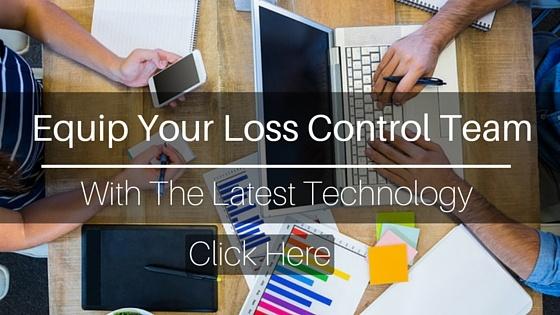
When it comes to loss control, there are many different questions up for discussion; What criteria do we use for account selection? What level of detail should we capture during the survey? Or often the most hotly-debated question: do we use in-house consultants or outsource the work?
Today we want to focus the discussion on outsourcing, as the majority of the carriers in North America outsource loss control field work to at least some degree.
Over the years we’ve heard many stories about positive outsourcing partnerships, but unfortunately also a large number of “horror stories” where loss control executives had bad experience after bad experience. This made us want to attempt to identify key traits that would help ensure you’re working with the Peyton Manning of loss control vendors, and not stuck with the Mark Sanchez’s of the industry (hopefully no one out there is a Sanchez fan!).
To help us in this analysis, we had the opportunity to sit down with our client and collaborator Gene Abbey, who is the AVP of Corporate Risk Management Services at Meadowbrook Insurance Group, and has over 25+ years of experience in loss control on both the carrier and vendor side of the fence.
After an in-depth discussion with Gene, we have boiled down what we felt to the be characteristics of an elite loss control field services provider:
Insurance Expertise
Many loss control consultants in the insurance space today originally came from industry, whether it be construction, safety or other specialties. While this depth of knowledge can be beneficial in many ways, the trade-off is often that they lack insurance fundamentals and have a hard time relating a risk to an underwriting perspective.
Consultants need to keep in mind that the end consumer of their report is the underwriter, who will be utilizing the material to make coverage decisions. The technical details are important, but these need to be distilled down to position the information to an underwriting audience.
So while it is absolutely acceptable to have consultants who came from industry, ensuring that quality assurance and management within the loss control provider have significant insurance expertise will help to ensure you receive high-quality reports which add value to your decision-making process.
Niche Focus
Many loss control providers try to be the “jack-of-all-lines” and want to get as much of your business as possible, which is only capitalistically natural. While it would be nice dealing with one vendor and managing as few relationships as possible, many times a single vendor simply doesn’t have the specialists for all of your unique lines, specialties or coverages.
Gene brought up the example of an equine risk specialist, which you would not expect to find within every outsourcing firm’s consultant mix. The main idea here is that just because your vendor does a great job on your main street commercial property for example, it doesn’t mean they have the same level of expertise in workers comp or specialty lines. In some cases, it does make sense to diversify your vendor portfolio to support certain niches. Vendors should also be up front in terms of where their team’s strengths lie and where they fall short.
Technology
In the loss control industry in general, many vendors (carriers are guilty of this too), are still using the old-fashioned clipboard, Word Processor/PDF approach.
While this has been the de-facto data collection tool over the years, without a loss control management system that has a proper database, it is very difficult to understand the underlying data, identify trends, correlate it with claims, etc.
With many carriers now automating their internal workflows, loss control executives need to ensure their vendor is keeping up and is able to provide the underlying data along with the report. If not, you are missing out on 10, 20 or 50% (depending on what percentage is outsourced) of the truth when it comes to analyzing your loss control information.
In complete agreement with this requirement, Gene also added that he would jump for joy if one of his vendor partners provided him some proactive advice based on an analysis of the data, perhaps even based on a trend analysis across the many carriers they do business with. For example, “Hey Gene, we’ve noticed these specific recommendations correlate with this risk profile…you might want to consider including additional data points in your loss control request parameters.”
Unfortunately, if the carrier or the vendor is still using paper or a word processor, this type of analysis is obviously very difficult, if not impossible.
Quality Feedback (by Consultant)
Have you ever had a vendor who wouldn’t tell you which one of their consultants completed your report? – this is quite shocking, yet surprisingly common.
Many vendors do this to ‘protect their workforce’, however it can be very frustrating to the carrier from a transparency perspective.
Gene stressed both transparency and an open feedback loop in ensuring a positive carrier-vendor relationship. If work received from a vendor consultant is of low quality, the carrier needs to be able to easily provide feedback and (1) have the issues rectified or (2) if the problem is recurring, have the consultant removed from their account.
A strong quality assurance process is a necessity for a vendor, but can only go so far in correcting low quality work. As you can imagine, if the report itself is weak when it arrives on the desk of the QA reviewer, how confident can we be of the analysis job the consultant performed while on site?
Good Old-Fashioned Customer Service
No matter how the industry changes or how much technology impacts the business, there is still no substitute for high quality customer service.
Having a capable account manager at the vendor who promptly returns your calls, answers your questions and is accountable is still the holy grail (this tends to be true in any business).
Too many times vendors get caught up in the day-to-day and lose sight of this, so you need to ensure they are committed to customer service or eventually the relationship will become very strained.
Gene emphasized that it’s harder than you might think to find vendors who provide top notch service.
Special thanks to Gene Abbey of Meadowbrook Insurance Group for contributing to this post.




